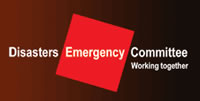Charity Commission warns of possible scams around East Africa crisis appeal
The Charity Commission is advising the public on how they can ensure that they avoid falling for fake charity appeals set up around the drought and food shortage crisis in East Africa.
The Commission is aware that such scams are likely, based on previous experiences with disaster appeals such as the Haiti earthquake and the Japanese earthquake and tsunami. These fake appeals can take the form of fake appeal websites, email appeals that falsely use the name of genuine charities, or appeals from fictitious charities.
The Commission is urging the public to keep giving but to be vigilant. It has issued the following advice for those who wish to make a donation:
• Be careful when responding to emails or clicking links within them. Don’t “click-through” from suspicious-looking emails and beware unfamiliar or excessively long website addresses. If you want to donate online, type in the charity’s website address from your homepage.
• Watch out for poor grammar and spelling in emails and other documents, including collection envelopes or clothing bags. This can also be a sign they are not genuine.
• If you have any concerns about the legitimacy of a request for donations that appears to come from a charity, don’t hesitate to contact that charity directly. Be wary of any appeals where contact details for the charity are not provided. You can find genuine contact details for charities on their websites or on the Register of Charities, which is available on the Charity Commission website www.charitycommission.gov.uk.
• If you are in any doubt about a charity collector, ask for their identification and the charity’s name and registration number. If you are not happy about giving then and there, you can check to see if the charity is on the public Register of Charities.
• If you are concerned that you may have been targeted by a fundraising scam, you should report this to Action Fraud http://www.actionfraud.org.uk and the police. You should also contact the Charity Commission – www.charitycommission.gov.uk.
• Think about how you are going to give. If you are a UK taxpayer and donate directly to a charity – whether online, over the phone, by post or by handing in a cheque at the charity’s office or shop – it can claim Gift Aid to maximise your donation.
The Commission also pointed out that there are laws around collecting money for charity in public which are there to protect donors and make sure that the money raised goes to a genuine charitable cause.
It advises members of the public that, if they want to fundraise for those who have been affected by the crisis in East Africa, they should:
• Have the necessary permission from your local authority or the Metropolitan Police if you live in a London borough.
• Only collect using a sealed tin or container.
• Always make sure you state the name and registration number of the charity you are collecting for.
• Always make sure there is more than one person to count the collection proceeds and sign off the total amount.
• Bank any cash as soon as possible, preferably straight into the charity account. Get a receipt from the Bank/Building Society.
• Report back to your community so they are reassured that the money has reached the good cause. You may wish to put notices in shops/post offices, or let your local paper know how much you raised and thank people for their support.
http://www.charity-commission.gov.uk/FAQS/Running_a_charity/fundraising/766.aspx



